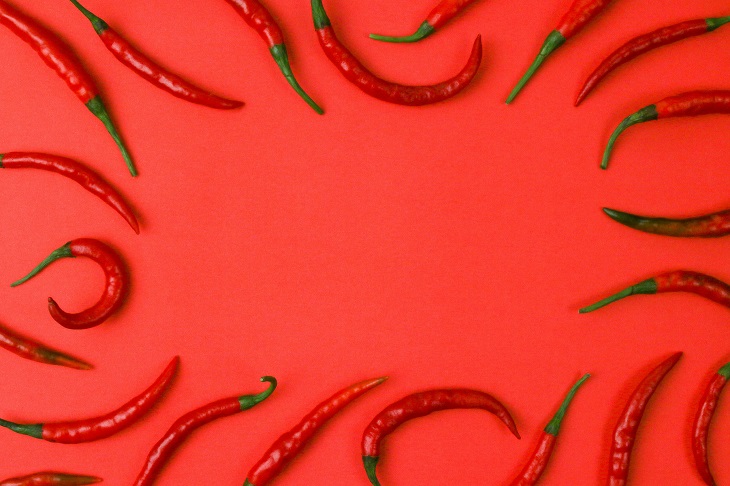Whether you feel as though your body isn’t burning as much fat as it should be, or you’re aiming to lose weight and can’t seem to keep it off no matter how hard you try, you may start to believe that your metabolism is simply against you. While there is some truth to fast and slow metabolism affecting weight, having an ill-functioning metabolism can affect more than just your weight.
In fact, every single thing you do (from thinking to breathing to sleeping) relies on a properly functioning metabolism. But what is your metabolism, exactly? How does it work? And are particular foods better for boosting metabolism than others? Read on to learn all you need to know, including why certain foods speed up your metabolism.
What is your metabolism?
Metabolism is a bodily process that converts the food you eat into energy that can be sent throughout the body. For example, when you eat an apple, its components are broken down and divvied out through the metabolism process. Metabolism combines the food’s calories with oxygen, which aids in the release of energy.
While some people may believe that you only need energy when you’re engaging in an activity, that’s not true. Your body requires a certain level of energy to perform even its most basic functions, such as breathing, growing and repairing cells, and circulating blood.
When we talk about speeding up the metabolism, the conversation is usually more geared toward to weight loss or maintenance.

What is the metabolic rate?
As mentioned above, when the body is at rest, it still needs energy. This means you could be doing nothing but lying down and breathing and you’ll still be burning calories. Your metabolic rate, also referred to as your basal metabolic rate, is how many calories you need for those basic functions. Not to be confused with your basal metabolic rate, your resting metabolic rate is how many calories your body burns while at rest.
When you’re thinking about speeding up the metabolism with food, you’re looking to increase your metabolic rate so that your body burns more calories when you’re not working out or moving around.
How does food affect your metabolism?
Every time you eat, digest, or store food, your metabolism increases because of the thermic effect of food. The thermic effect is a boost in metabolic rate after you eat due to the energy it takes the body to chew, swallow, and digest food. This means that regardless of what you eat, you’re still boosting your metabolism at every meal.
Different foods will offer a different type of boost, because each food comes with its own thermic effect and therefore boosts the metabolism in different ways. For example, eating a large steak will have a much more powerful boosting effect than eating a few small pieces of fruit.
Other factors that affect metabolic rate
While food plays a role in your metabolism, there are other factors to be taken into consideration when figuring out how to boost your metabolism. Your age, for example, is a key factor, because as you age, your metabolism begins to slow down naturally. This is due to a variety of reasons, including less physical activity, a decrease in muscle mass, and simply the natural aging process of the internal components that make up the metabolism.
Your hormones, overall weight, muscle mass, and body composition also play a vital role in metabolism.
What foods make your metabolism faster?
While all foods will provide a brief boost in metabolism because of the thermic effect of food, some are better for this purpose than others. The best metabolism-boosting foods include:
Protein-rich foods
Foods rich in protein such as lean meats, eggs, dairy products, nuts, seeds, and legumes have been shown to help boost the metabolism because of they have the highest thermic effect of food. Plant-based protein sources such as beans also have the same effect and can aid in boosting metabolism.
Mineral-rich foods
Foods that contain high levels of iron and selenium are important for metabolism boosting because of the way they affect the thyroid gland. The thyroid gland helps to regulate metabolism, so when it is running as it should, it helps speed metabolism up. Foods that are rich in minerals include nuts and seeds, shellfish, cruciferous vegetables, and organ meats.

Image by Nathan Dumlao on Unsplash: What foods make your metabolism faster?
Chili peppers
Chili peppers can help to boost metabolism because of capsaicin, a chemical they have in abundance. Research has found that eating chili peppers or using supplements can help to boost the metabolism so much that it burns an extra 50 calories per day.
Coffee and tea
Caffeine has been shown to help the body burn more fat for energy as well as boost the metabolism so much so that the body burns up to an extra 100 calories per day. It does this by stimulating the body’s system to burn more calories.
Tea can also boost the metabolism because it contains catechins, which are compounds that promote overall health. Tea, especially green and oolong, increase the body’s ability to burn more calories and use fat stores for energy.
Water
While many people may not think of water as a metabolism-boosting food, it has been shown to increase the speed of metabolism because the body needs to use more energy to heat the water up to room temperature – a process known as induced thermogenesis.
While all foods have an effect on metabolism after you consume them, some are more effective than others at boosting the metabolic rate. So why not include some of the above metabolism-boosting foods in your next meal?
Featured image by Thomas M. Evans on Unsplash



